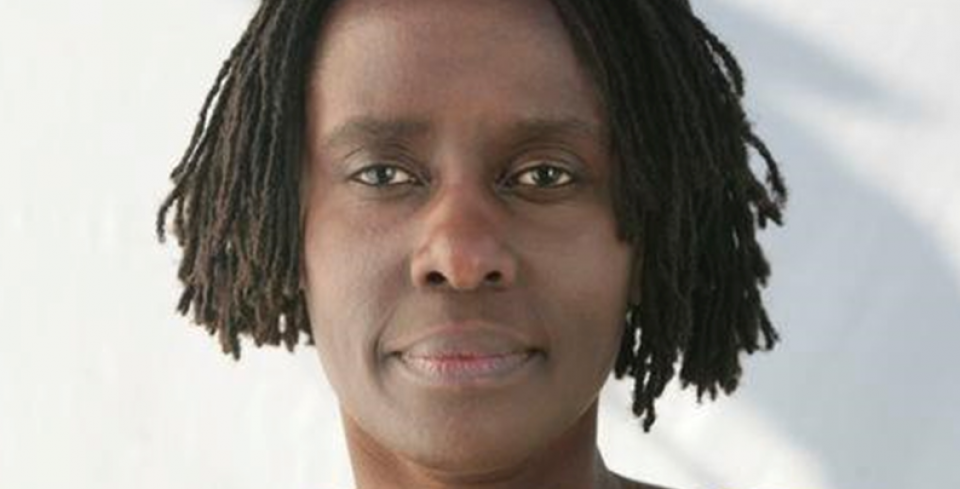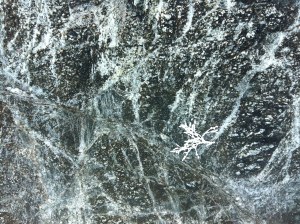Written by Juliane Okot Bitek

Juliane Okot Bitek
When Professor Zakes Mda gave his keynote speech at the conference, he beautifully lined out and linked the theme of his speech: “Autobiography, Memoir and Memoires” to the conference theme of “Truth and Memoir”. Writing from memory, he told us, requires emotional truth whereas autobiography calls for provable facts. Writing a reflection from memory a couple of weeks after the conference (having lost my notes on the last day) means that this reflection is a product of an emotional truth and there was plenty of that during the African Writer’s Trust Uganda International Writers Conference, which was held at Fairway Hotel in Kampala, from 1st-6th March 2015.
The conference brought together 30 writers from many parts of the world, including the USA, the UK, Cameroon, Kenya, Rwanda and Uganda, most of whom had only hitherto been preceded by their work or social media presence. Goretti Kyomuhendo, the director of the African Writers Trust and her very able team brought together a week of text, body, mind, heart and a spirit that drove the theme through the week. There were panels and presentations in the morning and in the afternoon, powerful binding and rebinding of relationships over drinks until late. To begin, Dr. Susan Kiguli (Uganda) presenting on a panel entitled: African Literary Renaissance: Return to Glory or Superficial Gloss? gave a brilliant and brief history of the 1962 Makerere conference to this moment; it was a powerful reminder that the same questions of power, authenticity, writing, and the role of the artist still dog us today.

L-R: Susan Kiguli, Juliane Okot Bitek, Susan Nkwentie, Jennifer Makumbi, Louise Umutoni, and Noo Saro-Wiwa

All mind-eyes listen to Oduor Jagero
In that single week, writers that live in Uganda and writers that live outside Uganda and writers that live outside Africa became one; defined by vocation and not location. Shadreck Chikoti (Malawi) illustrated how some publishers discourage African writers from contextualizing their work outside of the continent while Melissa Kyeyune (Uganda) provided examples of the ways in which digital publishing can ameliorate the need to define one’s self by location – her e-novels are set in cities around the world and they sell very well. Jagero Oduor (Kenya) bravely dove into and introduced the green shade with which African writers abroad can be considered while Chinelo Okparanta (Nigeria/USA) reminded us that exclusion and derision against Diasporan African writers was self-defeating for us, African people. Glaydah Namukasa (Uganda) presented her experience of winning a writing award as a very positive experience.

L-R: Glydah Namukasa, Mildred Barya, Emma D’Costa, Juliane Okot Bitek, Goretti Kyomuhendo, Jackee Batanda, and Chinelo Okparanta
Distinctions emerged from the different genres in which we work. There wasn’t much on playwriting, as Charles Mulekwa (Uganda) noted, but when he introduced Zakes Mda, with a call and response that electrified the room with the power of performance, our echoes welcoming Professor Mda would remain, even when we were gone – a powerful reminder that art is nothing without the people who live it, consume it, remember it, think about it, talk about it and bring it to life.
Women’s writing communities from Malawi, Uganda and Rwanda were introduced to us by Timwa Lipenga (Makenawa’s Daughters) Hilda Twongyeirwe (FEMRITE) and Louise Umutoni (Andika Ma); while Susan Nde spoke about the complications of writing, reading and getting published in a minority English- speaking Cameroon. Peter Kagayi (Uganda) introduced us to Lantern Meet of Poets, a community of poets who have reimagined poetry as a social and communal space. So having poets and prose writers reading together on the last evening at Kati Kati Restaurant was the practice of a new community.

From left front row: Chinelo Okparanta, Godfrey Byaruhanga, Goretti Kyomuhendo, Zakes Mda, Mildred Barya, Jackee Batanda, Charles Mulekwa, Susan Kiguli, Timwa Lipenga, Hilda Twongyeirwe, Emma D’Costa, Glydah Namukasa, Juliane Okot Bitekt, Peter Kagayi, Beverley Nambozo, Diana Santiago, Dilman Dila, and Danson Kahyana
We went to the FEMRITE offices in Kamwokya, where we interacted with beginning and established Kampala writers. In the comings and goings, we were immersed into writing culture and thinking about writing and writing about thinking; Jennifer Makumbi (Uganda/UK) gave a hilarious account of her first attempt at self-promotion on social media.

L-R: Michela Wrong, Shadreck Chikoti, and Noo Saro-Wiwa
Two nonfiction writers, both journalists talked about the work of writing about political figures and events. Michela Wrong (UK) and Daniel Kalinaki (Uganda/Kenya) spoke about the process of working with material that for the large part was already known and may have been published in the media before. Michela presented her insight as the fact that her third book: It’s Our Turn to Eat (2009) found the narrative which connected the news stories and pointed towards corruption in Kenya. Like Michela, Daniel’s book on Uganda’s opposition politician Kizza Besigye also used previously known material but he also spent much time and travel seeking to interview Besigye and his wife and others, who he says were very generous in filling in the blanks and humanizing the man beyond the politician known as Besigye.

L-R: Beverely Nambozo, Goretti Kyomuhendo, and Juliane Okot Bitek
I laughed far too much, I learned a lot. I discovered connections that I might never have imagined. The next time I’m in Gulu, I’ll go visit my father who lies at St Phillips Church and tell him about the conference. I will also look for the grave of Michela Wrong’s aunt who I understand probably lies close by.
—
Juliane Okot Bitek was born to exiled parents, both who hail from Gulu, northern Uganda. As such, the notion of home as a place that one belongs to by virtue of birth, has always been elusive. She currently lives and works in Canada. Juliane holds a Master’s Degree in English and a BFA in Creative Writing, and is currently a PhD student in the Interdisciplinary Students Graduate Program at the University of British Columbia’s Liu Institute for Global Issues. Her doctoral research focuses on post-conflict narratives of formerly abducted women in northern Uganda. Her work has been anthologized and published widely on-line, in print and in literary magazines such as Arc, Whetstone, Fugue, and Room of One’s Own. Notably in 2004, her short story Going Home, won the Commonwealth Short Story Contest, and was featured on the BBC and CBC.














